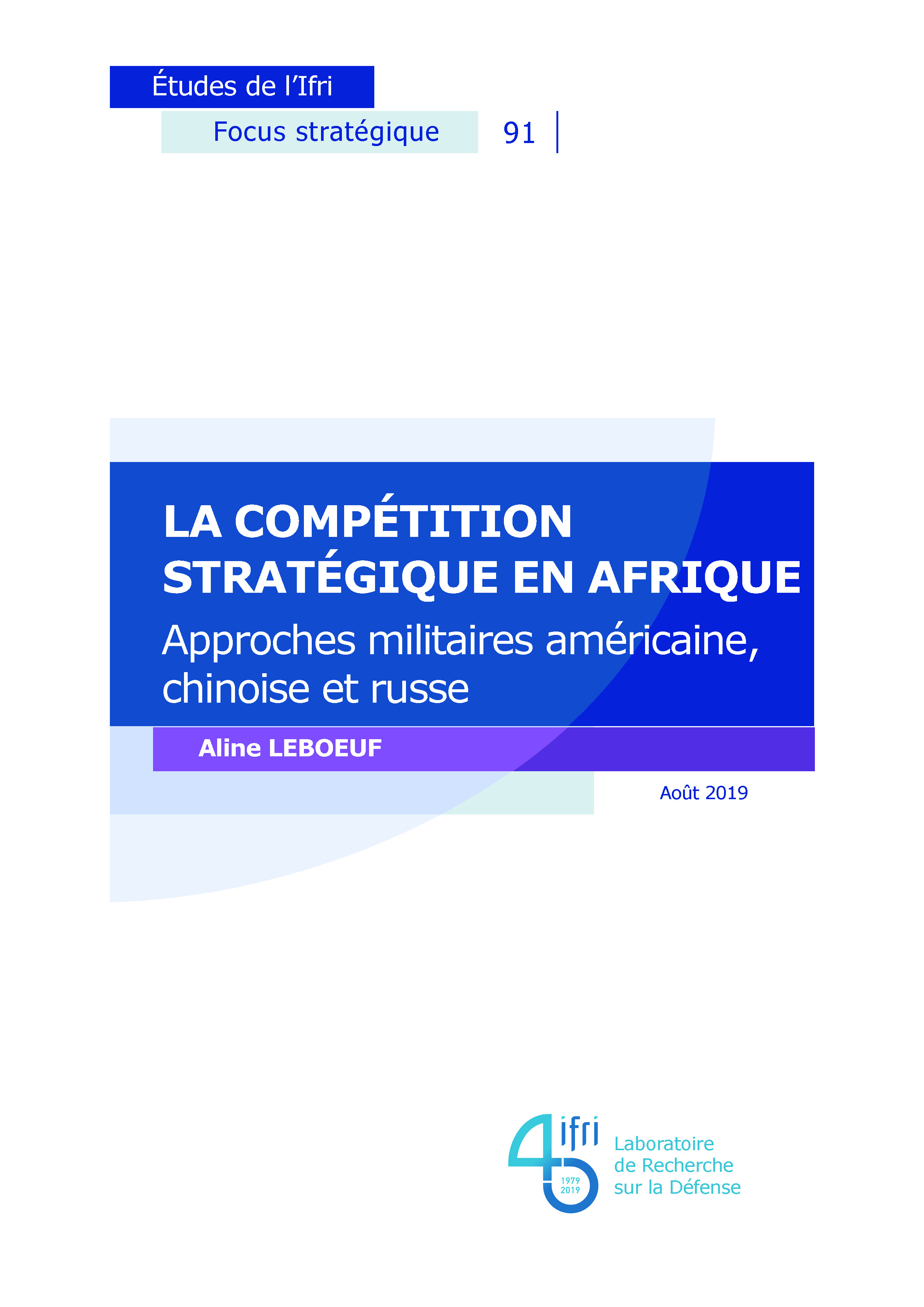La compétition stratégique en Afrique : approches militaires américaine, chinoise et russe

While it was left behind from power politics for the last decades, Africa is at the core of a renewed attention from global powers.
Africa was a crucial geopolitical stake during the Cold War, and is once again emerging as a significant area of strategic competition. Thereby, it attracts major non-European powers such as the United States, China, and Russia. Each of them seek to secure their access to the African theater of operations, through the means of funding and diplomatic agreements, construction of logistical bases, and the sustained exercise of their soft powers. They also conduct military operations on African soil. As the United States are still primarily engaged in Africa for counter-terrorism purposes, their actions on the ground are significant and coercive. As for China, its main efforts seem to be directed towards peacekeeping operations and plans for the evacuation of its nationals in the event of a crisis. For its part, Russia still restricts its operations to advisory activities. Finally, the three states are actively engaged in military cooperation, not only through arms sales, but also through joint training and exercises with their African partners. While the United States is still the dominant player in the African game, China and Russia are now catching up and increasing their involvement.
This content is available in French : « La compétition stratégique en Afrique. Approches militaires américaine, chinoise et russe ».
Related centers and programs
Discover our other research centers and programsFind out more
Discover all our analysesMain Battle Tank: Obsolescence or Renaissance?
Since February 2022, Russian and Ukrainian forces combined have lost more than 5,000 battle tanks, a much higher volume than all the European armor combined. Spearhead of the Soviet doctrine from which the two belligerents came, tanks were deployed in large numbers from the first day and proved to be a prime target for UAVs that became more numerous and efficient over the months. The large number of UAV strike videos against tanks has also led a certain number of observers to conclude, once again, that armor is obsolete on a modern battlefield. This approach must, however, be nuanced by a deeper study of the losses and their origin, UAVs rarely being the sole origin of the loss itself, often caused by a combination of factors such as mines, artillery or other anti-tank weapons.
Mapping the MilTech War: Eight Lessons from Ukraine’s Battlefield
This report maps out the evolution of key technologies that have emerged or developed in the last 4 years of the war in Ukraine. Its goal is to derive the lessons the North Atlantic Treaty Organization (NATO) could learn to strengthen its defensive capabilities and prepare for modern war, which is large-scale and conventional in nature.
"Iron Swords" A Military Analysis of Israel's War in Gaza
On October 7, 2023, Hamas' attack, dubbed “Al-Aqsa Flood,” caused a major shock and led Israel to launch the longest war in its history. Operation “Iron Swords” was notable for its unprecedented intensity, both in terms of the massive ground forces deployed and the firepower used.
Saudi Arabia’s Nuclear Temptations. Lessons Learned from Regional Instability
Saudi Arabia’s integration in the international arena and regional stability, notably through reducing its dependence on fossil energies, are crucial elements for the success of the Kingdom’s Vision 2030, the Crown Prince’s top priority. However, Mohammed bin Salman’s declarations in 2018 and 2021, indicating that “if Iran develops a nuclear bomb, we will follow suit as soon as possible”, combined with the recent strikes on key Iranian nuclear facilities, do not bode well for the future of the Kingdom, the region and the non-proliferation regime at large.














